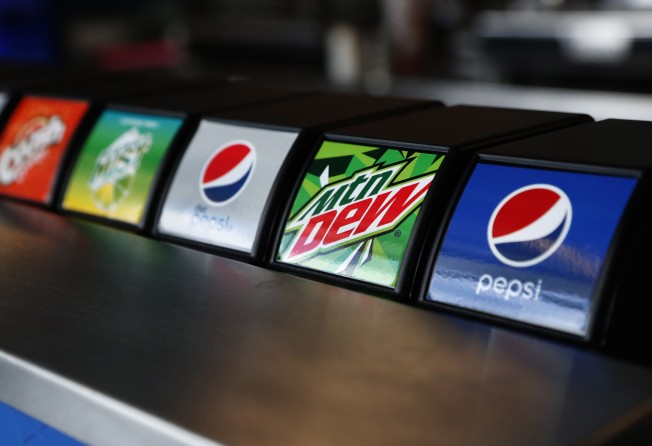PepsiCo pays US$705 million for a lesson in e-commerce through buying Chinese online snacks retailer Be & Cheery
- PepsiCo is buying Be & Cheery from Shenzhen-listed Haoxiangni Health Food
- Haoxiangni’s shares close down 2.1 per cent at 10.96 yuan in Shenzhen

PepsiCo has announced its biggest acquisition in China, dipping its toes into a business environment characterised by nimble, customer-facing innovations through buying an online retailer of dried fruits, beef jerky and snacks.
The drinks giant has agreed to pay US$705 million (HK$5.5 billion) for Hangzhou Haomusi Food – also known as Be & Cheery – from Haoxiangni Health Food, according to a statement. Haoxiangni’s shares swung dramatically during the day before closing down 2.1 per cent at 10.96 yuan in Shenzhen..
The acquisition is a recognition that China’s consumer-facing companies and their active e-commerce platforms have lessons to offer to the rest of the world, particularly when it comes to spotting quick-changing consumer tastes and innovations, said PepsiCo’s Greater China chief executive Ram Krishnan.
“Be & Cheery is highly complementary to our existing China business with its broad product portfolio, asset-light model, and focus on e-commerce,” said Krishnan.
Based in Hangzhou, Be & Cheery’s data-led innovation, as well as its flexible manufacturing and sourcing, enables it to quickly adjust its product portfolio to respond to changing consumer trends, said PepsiCo, which produces Gatorade drinks and Doritos tortilla chips.
Many traditional snack retailers sell through supermarkets while Be & Cheery markets directly to the consumer, enabling it to change prices and promotions quickly according to demand. Its largest online retail platform by sales is Tmall, which is operated by Chinese e-commerce giant Alibaba, the owner of the Post.
PepsiCo has been operating in China for nearly 40 years and this transaction marks a deeper investment in the world’s second-largest economy at a time when many other multinationals have been pulling back and the US-China trade war has been deterring cross-border investment.
Both Yum! Brands, the owner of KFC, and McDonald’s have sold operations in China in recent years. Multinationals have in many cases struggled to keep pace with changing Chinese consumer tastes and nimble Chinese competitors, armed with data, that are able to respond fast to developments in the fast-moving consumer goods sector.
Last year, PepsiCo agreed to buy a 26 per cent stake of China’s second-largest health food producer Shenzhen-based Natural Food International for HK$1.02 billion (US$131 million). The purchase of Be & Cheery is the largest by PepsiCo in China, and its eighth-biggest outside the United States, according to data compiled by Dealogic.
On the other hand, Chinese companies can benefit enormously from the sourcing capabilities of global companies.
Be & Cheery’s chairman Qiu Haoqun said the Chinese company will profit from PepsiCo’s strong branding and route-to-market capabilities, as well as its global supply chain network. Be & Cheery competes with companies such as start-up Three Squirrels in China.
After selling Be & Cheery, Haoxiangni will focus on developing red dates and local speciality agricultural products in the future, said the company’s chairman Shi Jubin, in a statement. Deutsche Bank is acting as sole financial adviser to Haoxiangni.
While many mergers and acquisitions in the Asia-Pacific region have been derailed by the new coronavirus outbreak, PepsiCo’s purchase of Be & Cheery was an exception. That is mostly because it is an online sales company and does not manufacture the snacks it sells, making due diligence of the company easier.
Delivery of products did suffer as orders backed up over the Lunar New Year holiday but quickly bounced back, so PepsiCo felt it was buying a battle-tested company, said a person familiar with the company.
Besides, it was a competitive auction and PepsiCo had to act quickly to beat other multinational firms eager to swallow the company.
The valuation was 18.3 times 2019 Ebitda, reflecting the company’s three-year compound annual growth rate of 29 per cent.
The transaction is subject to a Haoxiangni shareholder vote, regulatory approvals and other customary conditions.